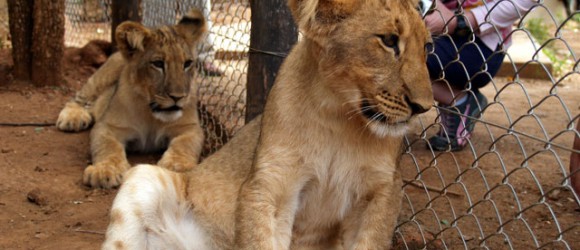The Murder of Lions In South Africa
- At July 23, 2017
- By Rosemary Wright
- In Global Issues
 0
0

The Murder of Lions in South Africa
800 Lion Bone Skeletons A Year From South Africa – Who Cares?
The Murder of Lions in South Africa – Social media has been buzzing with anger at this incomprehensible decision by South African Department of the Environment to promote the canned lion hunting industry, regardless of the environmental cost.
As the EIA points out in a splendid paper on this issue, it will adversely impact not only wild lions but also the few remaining wild tigers.
In light of the recent murder of Xanda – the son of Cecil – by a vulgar Spanish trophy predator – it is imperative for global citizens to raise their voices – get involved – share social media posts – sign petitions and speak out against the atrcoity that is canned lion hunting, along with its side line industries – cub petting – lion walks and phony volunteer opportunities.
Read Chris Mercer’s article below and be effective in your sphere of the world. Trying to take on the government of South Africa or CITES is not useful.
It will eventually be The Court Of Public Opinion that will change how we are treating global wildlfe. We must demand a ban on all trophy hunting and its associated businesses. Take a stand and make your voice heard where it matters!
Chris Mercer
Campaign Against Canned Hunting – CACH
CACH has come under pressure from several animal welfare and rights NGO’s to join in legal action against Minister Edna Molewa and her DEA. We have resisted doing so, for the reasons set out below:
First I am not qualified to practice in South Africa so everything I say should be regarded as mere opinion until confirmed by a real SA lawyer. Second the 800 lion skeletons are a spin-off of a lion farming and canned hunting industry which is perfectly legal in South Africa and not subject to any CITES ban.
I do not consider that there is any reasonable prospect of success in bringing litigation proceedings in South Africa. The first hurdle that has to be overcome (if this case were to be heard during our lifetimes) is to prove urgency. The South African legal system is very third world. It moves in a glacial time dimension. Can you even imagine the difficulty you would have in explaining to an African judge that the skeletons of dead lions are somehow a matter of urgency which would require him to postpone all his other casework?
So the case fails at the first hurdle. It never gets to court.
Let us assume that I’m wrong and that you actually get into the High Court during our lifetimes. The first thing the judge will say is – “Why are you wasting my time with this? You are complaining that undertakings given to CITES by DEA have not been properly implemented. You should know that a litigant must first exhaust all his administrative remedies before he is allowed to approach the High Court. Therefore you should take this matter up with CITES, not with me.”
And your case gets thrown out of Court. Again, before the merits are even considered.
Now, assuming I’m wrong about everything and you actually get to hear your case heard on the merits, your procedure would be by way of judicial review. In the unlikely event that you get this far and that the judge actually finds in your favour that there have been procedural irregularities by the DEA, Minister Edna Molewa would simply rectify the irregularities and carry on issuing permits. A pyrrhic victory.
If you wish to pursue this matter then you should do so with CITES, not in the SA courts.
Good luck with that!
If any institution is more dysfunctional than the South African legal system, it is CITES. For example, CITES Decision 14.69 bans the trade in breeding tigers for the sale of body parts, yet the ban is openly ignored in Asia.
Meanwhile we will carry on with our strategy and projects of reducing demand for lion farming products such as cub petting and fraudulent voluntourism.
Chris Mercer
CACH
CACH


Follow – A BEATING HEART